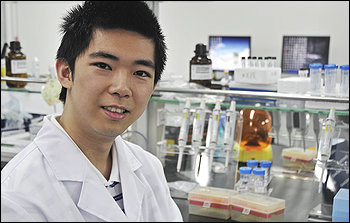
WAPO story on how loose and fast--by our standards--China explores the world of biotechnology.
Centuries after it led the world in technological prowess -- think gunpowder, irrigation and the printed word -- China has barged back into the ranks of the great powers in science. With the brashness of a teenager, in some cases literally, China's scientists and inventors are driving a resurgence in potentially world-changing research.
Unburdened by social and legal constraints common in the West, China's trailblazing scientists are also pushing the limits of ethics and principle as they create a new -- and to many, worrisome -- Wild West in the Far East.
I can't remember if it was captured in PNM or "Blueprint," but I explored this theme years ago in the brief when I'd tell the story of how a genetic therapy for cancer was invented in the U.S. but couldn't get tested for legal reasons. It was thereupon pursued in China, with its looser rule set on such things, and once it was proven out, the Chinese company came to the US to get a patent. That was an eye-opener for me.
Part of it is the difference in philosophy and religion: we have this one-life view of reality but the East is a lot fuzzier on that concept (Buddhism), so it's naturally more relaxed on the subject.
 Another reality: when you're on your way up, you have little regard for the environmental consequences. In that sense, I've always delighted in Futurama's character of Leo Wong, whose attitude toward the environment is emblematic of a lot of Chinese industrialists right now.
Another reality: when you're on your way up, you have little regard for the environmental consequences. In that sense, I've always delighted in Futurama's character of Leo Wong, whose attitude toward the environment is emblematic of a lot of Chinese industrialists right now.  Another good reference: Daniel Day-Lewis's portrayal of Daniel Plainview in "There will be blood." Talk about a plain view!
Another good reference: Daniel Day-Lewis's portrayal of Daniel Plainview in "There will be blood." Talk about a plain view!
China, with its hundreds of impoverished rural folk, will remain in this "conquering nature at all costs" mindset for a while--or until it gets too expensive. Yes, we'll hear about and see all sorts of efforts to go "green," but even there, you will see corner-cutting bravado that will frighten to no end.